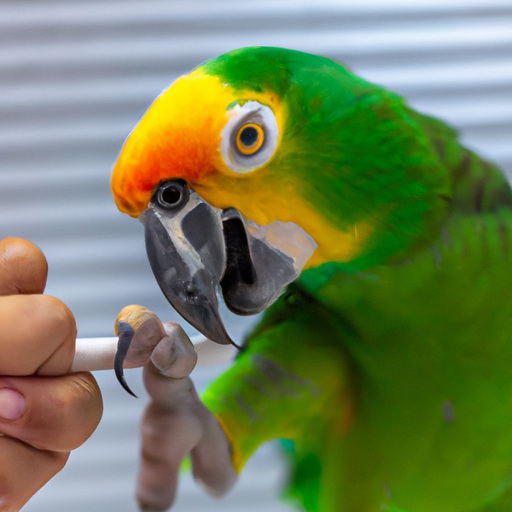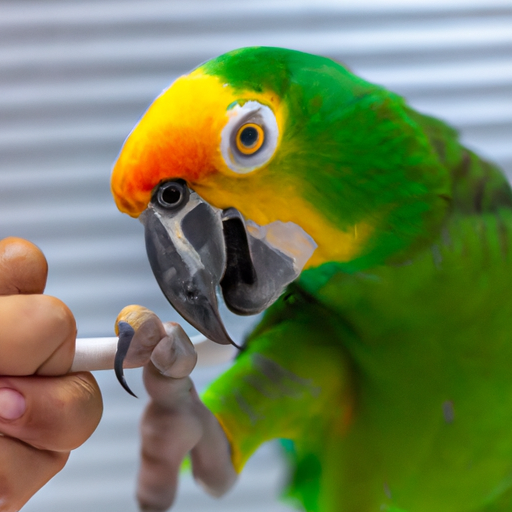
Managing Aggressive Behavior in Pet Parrots
Parrots are known for their vibrant personalities and impressive mimicry, making them beloved pets around the world. However, like all creatures, parrots can sometimes exhibit aggressive behavior. This can manifest as biting, screaming, or territorial actions that can be challenging for pet owners. Understanding the root causes of these behaviors and how to manage them effectively is essential for fostering a healthy relationship with your feathered friend.
Understanding the Causes of Aggression
Aggression in parrots can stem from various sources. One common cause is fear. A parrot may feel threatened by new environments, unfamiliar people, or even changes in their routine. Hormonal changes, especially during breeding seasons, can also lead to aggressive behavior. Additionally, lack of mental stimulation and boredom can frustrate a parrot, leading to aggressive outbursts. It’s important to identify the triggers that affect your pet so you can address them appropriately.
Creating a Safe and Comfortable Environment
Ensuring that your parrot feels safe and secure is a crucial step in managing aggressive behavior. This includes providing a suitable cage that is large enough for them to move freely and stretch their wings. The location of the cage also matters; it should be in a quiet corner of your home, away from excessive noise and commotion. Including toys and perches in their cage can help keep them entertained and engaged. Regularly changing these toys can prevent boredom and stimulate their mind.
Training and Socialization
Training is an effective tool in mitigating aggressive behavior. Start with basic commands and gradually introduce new ones as your parrot becomes more comfortable and trusting of you. Use positive reinforcement techniques such as treats or verbal praise to reward good behavior. Socialization is also key. Gradually exposing your parrot to new people and other pets under controlled conditions can help reduce fear and anxiety, which can lead to aggression.
Handling and Interaction
How you handle your parrot can significantly impact their behavior. Always approach your parrot calmly and speak in a gentle tone. Abrupt movements or loud noises can startle them. If your parrot is showing signs of aggression, give them space and time to calm down before attempting to interact with them again. It’s also important to establish a routine for handling and interaction, as parrots are creatures of habit and thrive on consistency.
Health Issues
Sometimes aggression can be a sign of underlying health issues. Pain or discomfort can make a parrot irritable and prone to lashing out. Regular check-ups with an avian veterinarian can help ensure that your parrot is in good health and not suffering from any conditions that could be contributing to aggressive behavior.
Seeking Professional Help
If you’ve tried these strategies and are still struggling with your parrot’s aggressive behavior, it might be time to consult a professional. Avian behaviorists can provide tailored advice and strategies based on the specific needs of your parrot. They can help you understand the nuances of your pet’s behavior and offer more specialized techniques for managing aggression.
Managing aggressive behavior in parrots requires patience, understanding, and a proactive approach. By creating a supportive environment, engaging in regular training, and maintaining their health, you can help your parrot overcome aggression and develop a stronger, more affectionate relationship with them. Remember, each parrot is unique, and what works for one might not work for another. Continuous learning and adaptation to the needs of your parrot are key to successfully managing their behavior and ensuring a harmonious coexistence.


3 Comments
Wow, this blog post is a godsend! I’ve been dealing with my parrot’s aggressive behavior for a while now and was feeling at my wit’s end. I will definitely be using these tips. 🦜💕
I really appreciate the insights in this article! I never fully understood why my parrot was being aggressive, but now I feel like I’ve got a better handle on it. Looking forward to applying these management strategies. Thanks for sharing! 😊
Great post! My pet parrot has been a bit of a handful lately. Hopefully, these tips will help us both find some peace. Love how you’ve broken down the reasons for aggression and given practical advice. 🦜👍